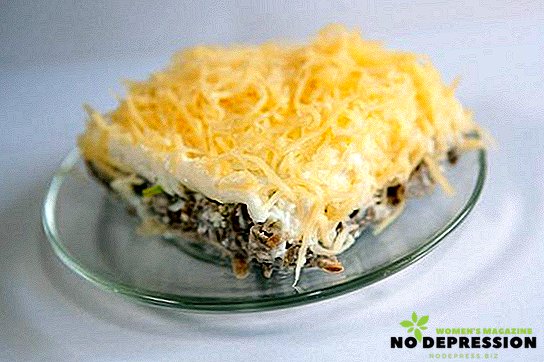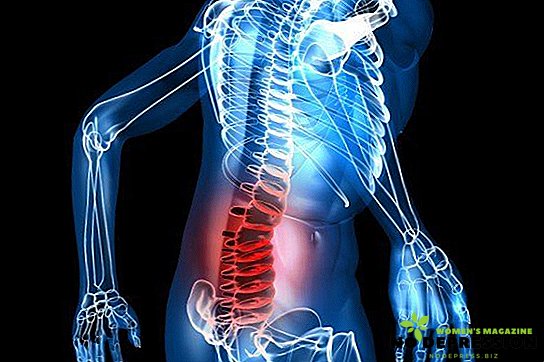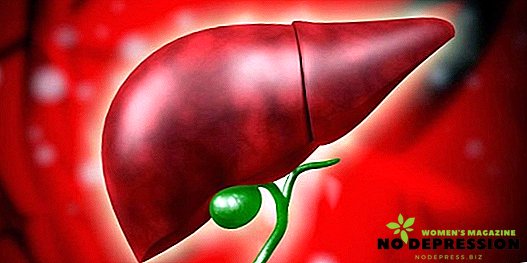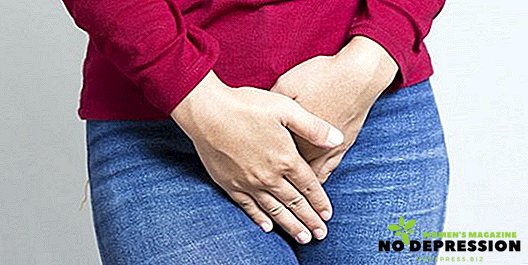The entire gestation period has a conditional division into 3 parts. Crushing due to the cyclical development of the fetus. Each stage is characterized by its special features. In the obstetric month 4 weeks. 14 weeks of pregnancy is 3.5 months.
Start the second trimester. The transition period, when the child has completed the formation of major organs and systems and begins an accelerated development. Below we will tell in more detail what is happening with the baby and the future mother.

Baby 3.5 months
From this period, the fetus begins to gain weight and grow. The child’s age is 2 weeks less: 12 weeks.
Appearance:
- disproportionate head;
- neck;
- elongated upper limbs compared with legs;
- development and formation of the face.
Eyebrows, bridge of nose, ears, eyelashes, eyebrows, hair on the head appear. On ultrasound, a game of facial muscles is visible: the child frowns, frowns, opens his mouth. The whole body is covered with a fluff, which retains a wax coating on the body of the child until delivery. This natural lubricant makes it easier for the child to pass through the birth canal.

The thyroid, pancreas, kidneys and liver begin to function. The fetus has its own insulin and blood. Blood volume is not enough, since the bone marrow has not yet begun active work due to the underdevelopment of the musculoskeletal system. The pulse is 140-170 beats / min.
The child distinguishes the taste of amniotic fluid. Its composition depends on the foods eaten. The child likes the sweet taste more, he swallows the amniotic fluid.
At this time, the diaphragm begins to move. The lungs prepare for their function after 6 months. The development of the brain continues.
When observing a child, it is noticeable that movements become more coordinated and meaningful:
- sucks fingers;
- touches itself and the walls of the fetal bladder;
- tries to deviate if he hears loud noises;
- turns restlessly when the mother is worried for some reason;
- swims, starting from the walls of the uterus.
Gender can not be visually determined. But girls already have ovaries, and boys have a prostate.
The size of the child at 14 weeks of pregnancy from 8 to 10 cm, weight from 20 to 40 g.
Term of pregnancy 14 weeks - changes in the mother's body
Changes in the appearance and character of the pregnant woman become noticeable. They are not striking, but the woman herself is already seeing signs. The belly increases, equilibrium replaces emotions.

The uterus at this period increases to the size of a small melon and is equal to 12 cm in length and 10 cm in width. In the prone position, it is felt through the abdominal wall. Breast size increased. Weight increases due to changes in blood volume.
In the life of a pregnant woman, nothing has changed significantly, except for the rejection of high heels, looser clothes. Hormonal background stabilized, the condition of the hair and skin improved. A woman becomes accustomed to the role of the future mother, listens with pleasure to the signals that the baby gives her.
Possible pathologies of pregnancy in week 14
Dangerous phenomena requiring immediate medical attention:
- bloody issues;
- pulling pains in the abdomen;
- itching, burning in the urinary organs.
Spotting may be the beginning of a premature opening of the uterus due to placenta prevailing.
Placenta previa means attachment and development at the base of the cervix. In such cases, the woman is under special supervision the entire duration of pregnancy.
Pulling, cramping pains indicate hypertonia of the uterus. Lower abdominal pains are safe if they are short-lived. A long and painful contraction of the uterine wall is dangerous for the fetus. To provoke tension can:
- weight lifting;
- a strong blow to the stomach;
- stress;
- genetic feature;
- complication after illness.
Fungal infection (candidiasis) of the genital organs occurs due to a weakened immunity or infection by the sexual partner.
Itching and burning in the urinary canal is accompanied by the appearance of cheesy-white with a sour smell of discharge. Rising infection is dangerous for the child.
The mismatch of Rh blood between the mother and the fetus leads to Rh conflict. A positive Rh factor means that Rh antigen (protein) is present in the erythrocytes. If not, then a negative Rh factor is determined.
Analyzes and surveys
At week 14, a visit to the gynecologist is required. Ultrasonography on this period is done as a last resort, if it was not done on time 10-11 weeks.

A pregnant woman is tested for control:
- the condition of the kidneys;
- pancreas,;
- for anemia;
- the presence of the inflammatory process.
General and blood test for sugar, urinalysis, blood for genetic disorders.
Researched amniotic fluid. For this purpose, the uterus wall is pierced in order to take the amniotic fluid for analysis. The procedure is carried out under the control of ultrasound.
Fruit photo:

At week 14, leg cramps may appear at night.
For women with a negative Rh factor, additional examinations for Rh antibodies are performed.
Risks and complications
A complication of pregnancy is infection of the fetus. One of the reasons is fungal infection. As a result of the penetration of the pathogen into the amniotic fluid, the newborn has signs of candidiasis, a weakened immune system.
Excitement, overwork, infectious diseases can cause hormonal disruption in the body of a pregnant woman. Disturbed metabolic processes in the mother and fetus. Adrenaline (a stress hormone) causes all muscles to enter into tone, including the uterus. Prolonged overstrain can cause fetal death or miscarriage.

When puncture of the uterine wall (for analysis of Down syndrome), there is a risk of uterine hypertonus and miscarriage.
The danger of Rh-conflict for a child arises when the future mother has a negative Rh and the fetus is positive. A woman’s immune system perceives the baby’s blood cells as pathogens.
Medical recommendations
Tips gynecologist relate to sleep, rest, nutrition, sexual life of a pregnant woman. Fat, fried, spicy, alcohol, nicotine should be banned.
Oily and spicy food increases the load on the liver and kidneys, impairs the taste of amniotic fluid. Alcohol and nicotine pass through the placenta and have a toxic effect on the fetus.
 Fresh, oxygenated air is a prerequisite for the health of the mother and child. The lack of oxygen in the blood will cause the development of symptoms of asphyxiation, neurological abnormalities.
Fresh, oxygenated air is a prerequisite for the health of the mother and child. The lack of oxygen in the blood will cause the development of symptoms of asphyxiation, neurological abnormalities.
Walking in the fresh air should be daily, not tiring, at certain hours. Ventilation of the premises is carried out several times a day.
In the daytime, the woman already feels tired and needs rest. Daytime sleep is optional. Night rest must be at least 9 hours.
Adjusted nutritional requirements:
- high protein content;
- calcium;
- vitamins of group B, C, A, E.
Mandatory products daily menu:
- 100 grams of meat;
- 50 g fatty sea fish;
- 200 ml of milk;
- 150 g of cottage cheese;
- 150-200 g of apples.
 Legumes are rich in vegetable protein: beans, peas, beans. Protein is a building material for muscles. The child will not gain weight with a lack of protein.
Legumes are rich in vegetable protein: beans, peas, beans. Protein is a building material for muscles. The child will not gain weight with a lack of protein.
Dairy products contain protein, vitamin A and calcium. Sour-milk products contribute to a better bowel cleansing. The whole range of dairy and lactic acid products should be on the table for a pregnant woman.
The most rich in calcium is cottage cheese, vitamin A - milk; bacteria that improve immunity and improve intestinal motility - kefir and yogurt.
Dental problems after childbirth, hair loss, and leg cramps are evidence of inadequate intake of calcium-rich foods during pregnancy.
A growing organism takes the required amount from the maternal osteo-dental system.
 Sweet maternity is allowed, but in small quantities. The volume of fluid is about 2 liters per day. Exception on products: everything that can cause an allergic reaction (chocolate, cocoa, citrus).
Sweet maternity is allowed, but in small quantities. The volume of fluid is about 2 liters per day. Exception on products: everything that can cause an allergic reaction (chocolate, cocoa, citrus).
Vitamin A will have to be used additionally in the form of a medicine. With vitamin deficiency, the child will have vision problems. This vitamin is part of the retina, all metabolic processes take place with his participation.
Vitamins B (B1, B6, B9) affect the activity of neurons in the muscle tissue and brain. Vitamin C is a catalyst and antioxidant. Vitamin deficiency will cause capillary fragility, increased bleeding, which is dangerous for both the mother and the fetus.
Compliance with the rules of personal hygiene is the daily reception of a warm shower, washing away the genitals. From now on, the doctor recommends the preparation of nipples if they are flat or concave.
Sexual relations on this term have no restrictions. The exception is the increased excitability of the uterus.
At a gestational age of 14 weeks, the baby and mother have characteristic signs. The child has formed and begins to function internal organs, hearing, vision, tactile and taste receptors. The appearance of the woman has not changed, but the hormonal restructuring of the body is over.
Current examination is carried out to monitor the activity of the kidneys, the level of hemoglobin in the blood. Women with a negative Rh factor, increased excitability of the uterus, if a child has Down syndrome, undergo additional tests, are at risk.

Medical recommendations in the normal course of pregnancy relate to the diet, daily routine.
Additional information about the 14th week of pregnancy can be found in the following video.












